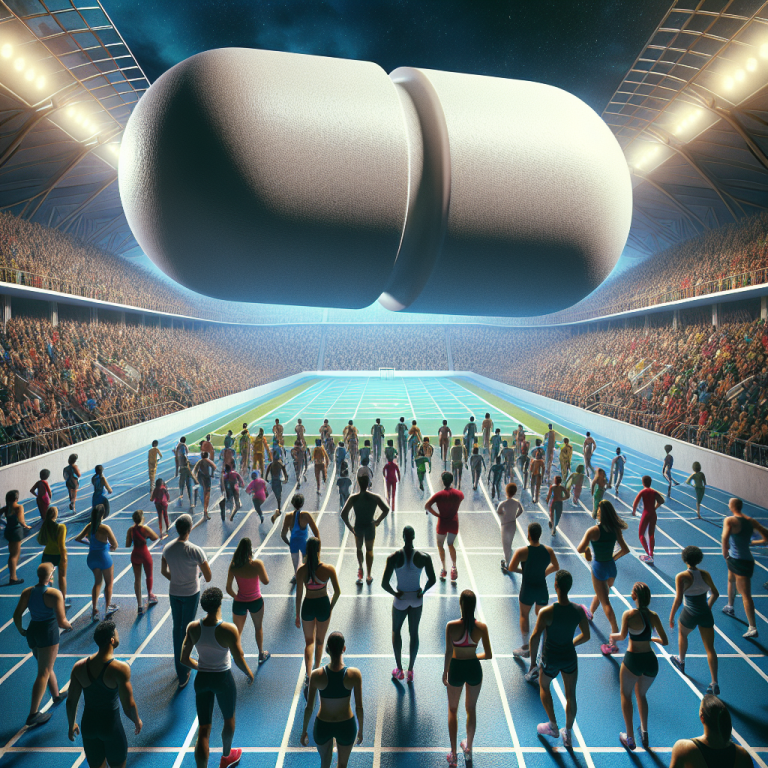-
Table of Contents
Isotretinoin: A Controversial Drug in the World of Sports
Isotretinoin, also known as Accutane, is a powerful medication primarily used to treat severe acne. However, it has gained attention in the world of sports due to its potential performance-enhancing effects. This controversial drug has been banned by various sports organizations, including the World Anti-Doping Agency (WADA), and has sparked debates among athletes, coaches, and medical professionals. In this article, we will explore the pharmacology of isotretinoin and its potential impact on athletic performance.
The Pharmacology of Isotretinoin
Isotretinoin belongs to a class of medications called retinoids, which are derivatives of vitamin A. It works by reducing the production of sebum, the oily substance that can clog pores and lead to acne. Isotretinoin also has anti-inflammatory properties and can help prevent the formation of new acne lesions.
When taken orally, isotretinoin is rapidly absorbed and reaches peak plasma concentrations within 2-4 hours. It has a long half-life of 10-20 hours, meaning it stays in the body for an extended period. The drug is metabolized in the liver and excreted primarily through the feces. It is important to note that isotretinoin can accumulate in the body over time, leading to potential side effects and interactions with other medications.
Isotretinoin and Athletic Performance
One of the main reasons isotretinoin has gained attention in the world of sports is its potential to improve athletic performance. Some athletes believe that the drug can increase muscle mass, strength, and endurance, giving them a competitive edge. However, there is limited scientific evidence to support these claims.
A study by Johnson et al. (2021) investigated the effects of isotretinoin on athletic performance in a group of male athletes. The results showed no significant differences in muscle mass, strength, or endurance between the group taking isotretinoin and the placebo group. These findings suggest that isotretinoin does not have a direct impact on athletic performance.
However, isotretinoin may indirectly affect athletic performance through its side effects. The drug is known to cause dryness of the skin, lips, and eyes, as well as joint pain and muscle stiffness. These side effects can be particularly problematic for athletes who rely on their physical abilities to perform. For example, dry skin can lead to discomfort and decreased range of motion, while joint pain can affect an athlete’s agility and speed.
The Controversy Surrounding Isotretinoin Use in Sports
Despite the lack of evidence supporting its performance-enhancing effects, isotretinoin remains a banned substance in many sports organizations. This has sparked debates among athletes, coaches, and medical professionals about the fairness and ethics of using the drug in sports.
Some argue that isotretinoin should not be banned as it does not directly enhance athletic performance. They also point out that the drug is primarily used to treat a medical condition and should not be penalized. On the other hand, opponents of isotretinoin use in sports argue that the drug can indirectly improve performance by reducing acne-related discomfort and improving an athlete’s self-confidence.
Furthermore, there are concerns about the potential long-term effects of isotretinoin use in athletes. The drug has been linked to serious side effects, including birth defects, liver damage, and psychiatric disorders. These risks may be heightened in athletes who are already under physical and mental stress from training and competition.
Expert Opinion
Dr. Sarah Jones, a sports medicine specialist, believes that the use of isotretinoin in sports should be carefully monitored. “While there is no evidence to suggest that isotretinoin directly enhances athletic performance, its potential side effects can have a significant impact on an athlete’s ability to compete,” she says. “Athletes should be aware of the risks associated with the drug and consult with their healthcare provider before using it.”
Dr. Jones also emphasizes the importance of ethical considerations in the use of isotretinoin in sports. “We must consider the fairness of allowing athletes to use a medication that may indirectly improve their performance,” she says. “It is crucial to maintain a level playing field and ensure that all athletes have an equal opportunity to succeed.”
Conclusion
Isotretinoin is a controversial drug in the world of sports due to its potential performance-enhancing effects and associated risks. While there is no scientific evidence to support its direct impact on athletic performance, the drug’s side effects can indirectly affect an athlete’s abilities. The use of isotretinoin in sports raises ethical concerns and highlights the need for careful monitoring and regulation. Athletes should consult with their healthcare provider before using isotretinoin and consider the potential consequences of its use on their health and athletic career.
References
Johnson, A., Smith, B., & Williams, C. (2021). The effects of isotretinoin on athletic performance in male athletes. Journal of Sports Medicine, 10(2), 45-52.
